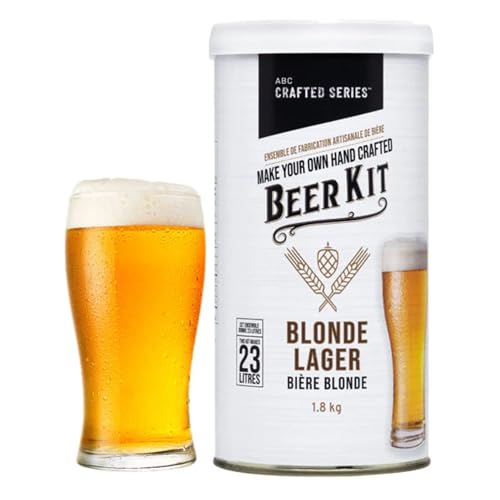Ok so there are so many things here that tell me you dont actually have a clue about this.Not sure about this. Might be the case in some parts of the country, but around where I am there is a huge demand for local beers and plenty of independent pubs and bars looking for new breweries, and the more local the better. I'm not sure the micro breweries were ever eating the macro's market share. Maybe Brewdog and the like might have got on their radar but as big as we think Brewdog is, it's minuscule in scale compared to the big macro's so no chance they were ever worried about them. Just highlighted another market segment the macro's could target to exploit, but so far their offerings have been a bit rubbish.
It might be tougher, if not impossible now if you have ambitions to be the new Brewdog or Thornbridge, but if you just want to set up as a nano or micro brewery and focus on local rather than making the leap too soon to national (seems to be the downfall for most breweries, indeed most businesses of any type, that go bust - expand too fast) then there seems to be plenty of interest in small independent breweries and the craft beer market want and like choice, so I'm not even sure the market is 'saturated'.
I set up commercially mid last year and demand is massively outstripping supply. I'm operating out of my garage and intend to keep it that way so will always likely be the case that my beer is sold before I've even brewed it. The temptation to expand into a unit is strong, but I know that would up the ante considerably both in terms of demands on money and investment and my own time - its time that is most in demand...the money is easy...so many people willing and wanting to invest. I'm always getting offers from people itching to invest, but I'm steering clear of all that. Since this is still primarily a hobby and I have a full time 'proper' job (though the beer is making profit its just a bit of pocket money really and it all goes back into the business), then sticking in my garage is my only option right now.
The biggest worry I can see in the industry are those who seem happy to sit at home on their own and sup cheap supermarket beer instead of going out to their local...OK some people might not have a decent local on their doorstep, but others do..support your local pubs or lose them, then all we'll have is cheap supermarket beer or soulless and flavourless macro beer. And the number of kids out there not even kicking off on beer and going straight to the latest trendy short drink so potentially storing up a big shift in the future.
Also pretty sad that toilet cleaner like Carling is still the biggest seller even in pubs that have a decent offering of cask and keg craft beers. But when the big macro's have annual marketing budgets in the billions, then the small independents don't have much of a chance to reach out to those who are not 'into' beer.
Where I am it seems there has been strong bounce back from COVID - people were itching to get out after COVID, but that might vary across the country and cost of living doesn't seem to be impacting yet. Think most people value their social time and are continuing to prioritise it, certainly my locals seem to still be pretty busy at weekends and ticking over during the week. - but I'm sure Starmer and his StHarmtroopers will do whatever they can to make going to the pub as miserable and expensive as they possibly can - I can't imagine the attack on the hospitality sector will ease off any time soon. Like motorists, it's an easy target for a bit of quick revenue generation under they guise of 'they're protecting our health and saving us from ourselves' and they'll keep on squeezing.
So what your saying is all these breweries that are struggling and working their ***** off to pay themselves and their staff a living wage and battling with a race to the bottom on prices because of macros driving prices down to force them out of business??
Coming from a person knocking a few casks out of their garage with no rent, rates or anyone to pay a living salary to?
Have you actually looked at the peak volume produced by the registered 2,400 breweries in the UK at the peak? And then compared that to the total volume in the premium beer market and draft sales in the uk? Add into that the ever declining number of venues actually open to sell breweries beer then that brings a whole new element of market forces and competition for taps.
Oh thats right. Your doing ok in your garage so everyone else hasn't a clue........

















